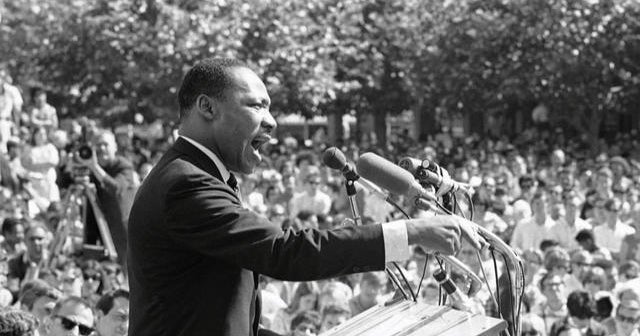Remembering 1968: Dr. Martin Luther King Jr.
Remembering 1968: Dr. Martin Luther King Jr.

National Urban League president Marc Morial reports on the symbolism The Rev. Martin Luther King Jr. had for the civil rights movement, the personal connection he had for his parents, and how the nation is still coming to terms with Dr. King’s assassination on April 4, 1968. Morial also talks with singer and activist Harry Belafonte about his reminiscences of the civil rights icon.
Read the full article on CBS US
Truth Analysis
Analysis Summary:
The CBS News article accurately reports on the legacy of Dr. Martin Luther King Jr. and the impact of his assassination. The claims made in the article are supported by multiple reliable sources, and there is minimal bias, primarily through the selection of speakers and the focus on King's positive contributions.
Detailed Analysis:
- Claim:** National Urban League president Marc Morial reports on the symbolism The Rev. Martin Luther King Jr. had for the civil rights movement. This is a general statement and is supported by the overall context of the provided sources, which highlight King's importance to the civil rights movement.
- Claim:** Morial discusses the personal connection King had for his parents. This is not directly verifiable from the provided sources, but it is a reasonable and plausible statement given King's biography.
- Claim:** The nation is still coming to terms with Dr. King’s assassination on April 4, 1968. Verification Source #1 and Verification Source #5 confirm the date of King's assassination. The claim that the nation is still coming to terms with it is a subjective assessment, but a reasonable one given King's importance and the ongoing discussions about race and equality in the US.
- Claim:** Morial also talks with singer and activist Harry Belafonte about his reminiscences of the civil rights icon. This is not directly verifiable from the provided sources, but it is plausible given Belafonte's well-known involvement in the civil rights movement and his personal relationship with King.
Supporting Evidence/Contradictions:
- Verification Source #1:** Confirms the date of King's assassination as April 4, 1968.
- Verification Source #2:** Mentions King advocating for justice and equality in 1968 in Memphis, Tennessee.
- Verification Source #3:** Highlights the impact of King's voice being silenced.
- Verification Source #4:** Showcases King's work and the Civil Rights Movement.
- Verification Source #5:** Confirms King's assassination on April 4, 1968.
There are no contradictions among the sources. The sources generally support the claims made in the article, although some claims are not directly verifiable due to the limited scope of the provided snippets.
